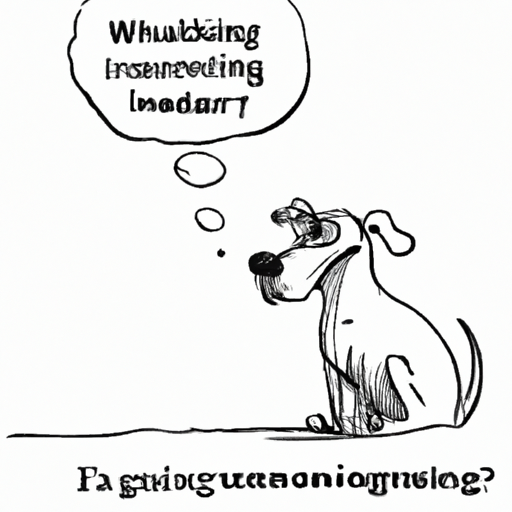Understanding Dog Whining
You’ve probably noticed your furry friend whining every now and then. This behavior, while common, could perplex you. The key to understanding your dog’s whining lies in knowing that dogs communicate differently than humans. Whining is a form of canine communication that serves various purposes, from expressing discomfort to seeking attention. Remember, your role as a caregiver is to decipher these signals to ensure your pet’s well-being.
Reasons Behind Dog Whining
Identifying the root of whining can help you address it effectively. Here are a few common reasons:
- Anxiety: Just like humans, dogs experience anxiety. It could be due to separation, unfamiliar environments, or loud noises.
- Pain or discomfort: Whining could indicate physical discomfort. If your dog whines continuously or while moving, it might be time for a vet visit.
-
Attention-seeking: Dogs often whine to get your attention. They might want to play, eat, or simply bask in your love.
-
Excitement: When excited or overstimulated, dogs tend to whine. This could happen during playtime or while waiting for a walk.
- Submission: Sometimes, dogs whine to indicate submission or appeasement in the face of dominant figures or situations.
How To Respond To Dog Whining
Your response to dog whining should be guided by its cause. If it’s due to pain, consult a vet. For behavioral issues, training might be the solution. Remember, patience and consistency are key.
| Cause of Whining | Suggested Response |
|---|---|
| Pain or Discomfort | Consult a vet |
| Anxiety | Provide a safe space; consider behavioral therapy |
| Attention-seeking | Ignore until quiet; reward calm behavior |
| Excitement | Provide distractions; train for calmness |
Preventing Excessive Whining
To prevent excessive whining, establish a routine and stick to it. Regular exercise, a balanced diet, and consistent training can work wonders. It’s also important to reinforce positive behavior. Remember, your dog looks to you for cues, and your reactions can shape their behavior.
Dealing With Persistent Whining
If your dog’s whining persists despite your best efforts, it might be time to consult a professional. Persistent whining could indicate more severe issues such as chronic pain or deep-seated anxiety. Don’t hesitate to reach out to a vet or a professional dog behaviorist.
Frequently Asked Questions (FAQs)
Q: Is whining always a sign of distress in dogs?
A: Not always. Dogs also whine out of excitement or to seek attention.
Q: How can I tell if my dog’s whining is due to pain?
A: If the whining is continuous, or if it occurs during certain movements, it might indicate pain.
Q: Should I ignore my dog’s whining?
A: That depends on the cause. If it’s attention-seeking behavior, ignoring can be effective. However, never ignore whining that might indicate pain or discomfort.
Q: Can training help reduce whining?
A: Yes, consistent training can help manage and reduce whining, especially if it’s due to excitement or attention-seeking behavior.



